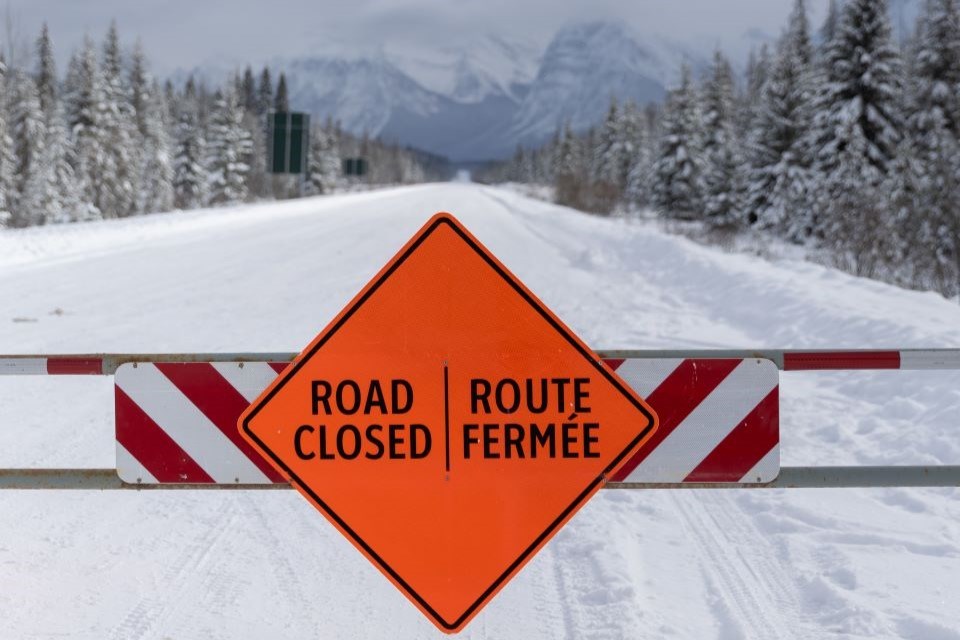Parks Canada says recent avalanche control work on the Icefields Parkway went smoothly despite two motorists breaking through the gates.
The Icefields Parkway had been closed for the work, which was originally anticipated to occur between Feb. 28 and March 1, but the closure was extended until March 2.
“The only negatives with the event this time, as we’ve had a few times in the past, is that every once awhile we wind up with impatient motorists that actually break through the gates and travel into the hazard zone unexpectedly,” said Dave Argument, resource conservation manager with Jasper National Park.
“In this last round, it actually happened twice: one from the north, one from the south. Somebody crashed the gate and came into what is actually an active blasting zone with the avalanche control work going on.”
Avalanche control work involves explosives. With safety being a major concern during such operations, officials with Parks Canada close the road off as a precaution.
When people break through the gate, they put themselves and the avalanche control team at risk, not to mention putting an unnecessary delay on the work.
“We're working on trying to mitigate that concern and beef up the gates and try to find ways to prevent that from happening,” Argument said.
The avalanche control operations team manages 38 individual slide paths along the parkway. Argument said it was quite a responsibility to make sure that each of those has been assessed for the hazard that they present to the parkway. The responsibility extends to ensuring that each is cleaned out to bring down any overhead hazard in the slide path, work that entails using a lot of explosives.
At that point, it goes over to the highway operations unit and the plow crews to clean the road up afterwards before the road can safely reopen for the traveling public.
“The emphasis, of course, is on the safety of the traveling public and safety of staff when they're conducting those operations,” Argument said.
“Sometimes it seems like the closures – for some people's liking, I know – take a little longer than they might like, but we're really emphasizing doing a thorough job of it, making sure that staff are safe and the operations they're doing, and that we’re thoroughly addressing the risks before we let people back onto the parkway.”
What precipitated the avalanche control work was a major snowfall event that brought down more than 50 centimetres on an unstable snow base.
In one case from last year, one motorist cut the lock off the gate and then placed their own lock on it afterward.
Argument said any motorist that is intercepted by law enforcement officers would face charges of entering a closed area. There was no word on whether such charges were laid against the two gate-breakers involved in this recent round of avalanche control work.
The Icefields Parkway passes through some of the most spectacular mountain slopes in the world, but it is also a wilderness parkway, said Janelle Verbuggen, Parks Canada’s communications officer with the Jasper Field Unit.
“Closures are only put in place when absolutely necessary, when weather, road or avalanche conditions present a risk to human life, and for the shortest timeframes possible to allow for snow to be safely removed and safe driving conditions to be restored,” she said.
“When roads are closed, gates are locked for the safety of park visitors and motorists. Breaking gates or intruding into avalanche control areas is unsafe and illegal.”
Maligne Lake Road was also closed until March 3 at Maligne Canyon.
The Special Public Avalanche Warning (SPAW) was in effect until March 4 for Jasper, Mount Revelstoke, Glacier, Banff, Yoho, Kootenay and Waterton Lakes national parks.
Parks Canada reminds everyone to always check road conditions ahead of time through 511.Alberta.ca or phoning 511.


